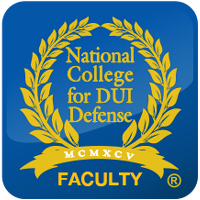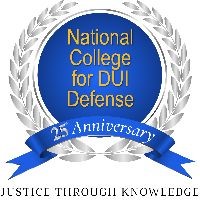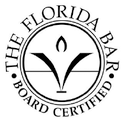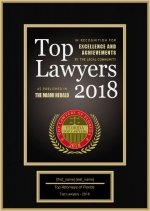Boating Tragedy Questions Linger
Curtis Morgan
- Miami Herald, The (FL)
- March 19, 2000
In the twilight of a balmy Sunday last May, two boaters cruised home on Biscayne Bay, unaware they were on a collision course that would erase an entire Miami family. The larger boat literally ran over the smaller one. Cesar and Lucila Rodriguez were killed in a blink, battered bodies hurled overboard. Daughter Patricia lingered comatose a few weeks with massive skull fractures but never awoke.
Almost a year later, the messy circumstances of the accident have compounded the grief of relatives. First came the ache of autopsies tagging both parents legally drunk. Now comes frustration. The Florida Marine Patrol recently closed its investigation and opened the case file to the public, revealing that the other skipper, Robert Hays, also admitted downing several drinks. But after an initial field sobriety test - several steps short of the standard procedure - officers quickly ruled out that Hays might have been intoxicated. They never tested his blood or breath, despite a garbage bag full of empty bottles and multiple victims.
"The image this leaves is that Cesar was drunk and the other guy, nothing. That is not the way it happened,'' said Lucila's father, Alberto Martinengo. "You can't tell me you see something like that, bottles in his boat, and you don't test him. I can't understand it.''
The case puts into tragic perspective an often overlooked exception in state law. On a boat, it's legal to drink and drive. It also raises questions about U.S. Coast Guard and Marine Patrol procedures. Both agencies defend their decisions but admit accidents like this one - near dark, in open water, without witnesses - are tough to crack. Three officers judged Hays sober. Other questions, including a critical one about lights, could not be resolved, said Curt Kaloostian, the Marine Patrol's chief investigator on the case. "Someone was there to give the Hays' account,'' he said. "Unfortunately, there's no one to speak for the Rodriguezes.''
For all involved, the accident remains a searing memory.
Hays, 56, a fence company executive who lives in Coconut Grove, declined comment. "As of right now, the whole issue is still too painful for me to talk about.'' His attorney, Robert Payne of Fort Lauderdale, did not return calls, but in papers filed in U.S. District Court denied any "fault, neglect or want of care'' by Hays.
The Rodriguezes' remains rest in urns on a book shelf in Martinengo's Deerfield Beach town house, adorned with cards and photos. He had hoped for a resolution before scattering the ashes at sea, where the family spent many happy days: daughter Lucila, 39, a property manager; son-in-law Cesar, 43, an aviation mechanic who owned a business at Kendall-Tamiami Executive Airport; and granddaughter Patricia, 10, a fifth-grader. Martinengo has hired an attorney, Robert Dickman of Coral Gables, who did not return calls. But Martinengo insists he wants answers, not money. Relatives acknowledge Cesar and Luci shouldn't have been drinking, but the official report troubles them.
Rodriguez Defended
Esperanza Martinengo, Lucila's sister, was aboard the Open Bar before being dropped off at Monty Trainor's on South Beach shortly before the accident. She said Cesar, a veteran boater, drank several beers during the day but behaved normally, "otherwise I would not have let my sister and niece back on that boat.'' She asked officers that night if Hays had been tested. "They said, 'No, he seemed fine.' Seemed is not a very definite answer.''
The two boats, both ending daylong outings mixed with beer and liquor, were heading home in opposite directions - Hays and wife Patricia, 50, to Coral Reef Yacht Club, the Rodriguezes to Matheson Hammock boat ramp. They crossed paths just off Dinner Key.
The Hays said they were cruising, navigational lights ablaze, about 35 mph but only Patricia Hays reported seeing anything - just "a black shape'' at impact. No running lights, no anchor light, nothing in the darkening dusk. Bubba, their 36-foot Marlin offshore fisherman with twin 250-horsepower motors, buzz-sawed the Open Bar, the Rodriguezes' 22-footer. The bottom of Bubba's hull crushed the center console seating area and left a streak of blue paint on the dented top of Open Bar's 225-horse outboard.
Lighting Questions
While a test of the Open Bar proved inconclusive, it supported the Hayses' story. The boat's lighting system - badly damaged by the wreck - was functional, Kaloostian said, but "the best we can determine'' may have been switched off. Though bruised and shaken, the Hayses did everything correct after the wreck. They radioed a distress call, at 8:45 p.m., and stayed near the other boat, which was turning in a crippled circle with only Patricia, battered and bleeding, aboard. Rescuers responded rapidly but nearly 45 minutes passed before an officer boarded the Hayses' boat.
At sea, said the Marine Patrol's Kaloostian, the first priority always is finding or aiding survivors. "The investigation has to wait.'' Once it started, case reports indicate confusion between officers and - in the judgment of the Rodriguezes' relatives - some questionable decisions.
Coast Guard Petty Officer William Dennis, the first aboard Bubba, began a battery of tests after Hays admitted having "a few drinks earlier in the afternoon.'' According to the Coast Guard manual, it's supposed to be a standard six-step exercise to be accompanied, when possible, by a Breathalyzer. The last step is called a horizontal gaze nystagmus. HGN, which measures involuntary eye movements, is uniformly recognized as the most reliable indicator of inebriation, short of blood and breath analysis, said Ed Mandt, director of the Criminal Justice Institute at Broward Community College, a police training academy.
UnscientificTest
"It's a test with no scientific basis but it's pretty effective,'' he said, "remembering that the purpose of it is to help the officers decide if some further investigation is necessary.''
Hays made minor errors in the first steps, repeating ``P'' while reciting the alphabet and miscounting 4,2,3,1 during a finger-to-thumb touch test, but nothing considered serious, said Lt. James Mathieu, Dennis' commanding officer. "For the circumstances this guy was involved in, he was doing pretty damn good.''
But Dennis never got to the HGN or Breathalyzer, halting halfway through when two Marine Patrol officers, Scott Kihei and Jason Lundy, arrived to take over. In the exchange, the Marine Patrol officers, according to their reports, assumed Hays had passed the full array. Kihei asked specifically about HGN and wrote that Dennis replied "he had performed the tasks and Mr. Hays had passed all.''
Once aboard, Kihei took a closer look at Bubba. He found a broken bottle in the boat, seven unopened beers in an ice chest, and an empty liter of rum and seven empty beers in the trash. A later check found forward compartments with another 24 unopened beers, two vodka bottles, one of whiskey and one of rum, each at least half empty.
'A Beer or Two'
Hays, Kihei said, told him they'd taken two friends to meet a large group for a day of socializing near Elliott Key and that he had "a beer or two at lunch and one or two mixed drinks.'' Because Hays seemed fine and Kihei believed the Coast Guard battery complete, Kihei didn't do further tests.
By the time Kaloostian talked to Hays, five hours after the accident, the estimate had moved up a notch to "a couple of beers at lunch and two or three drinks after'' mixed with vodka. Patricia Hays also said her husband had a couple of beers and some rum punch.
The Open Bar, which carried eight people for much of the day, also had a stock. In an ice chest, there were 10 unopened beers and four wine coolers. Investigators also found six empty beer cans floating in the half-sunken boat. The Rodriguezes also had stopped to eat, drink and drop five passengers at Monty Trainor's. The Miami-Dade County Medical Examiner fixed Cesar's blood alcohol level at 0.10 and Lucila's at 0.19, both above the legal limit of 0.08.
No Blood Test
After reviewing the case, Coast Guard and Marine Patrol supervisors said their officers played it right. Nothing - not empty bottles nor the body count - mandated a blood test, they said. To demand blood, Kaloostian said, officers needed to suspect Hays was under the influence, but not one saw a suggestion of that - no slurred words, no fumbling movement, not a whiff of alcohol. The couple were cooperative and repeatedly expressed concern about the other boaters.
"Let me put it to you this way, I would have loved to have taken blood from him - lawfully,'' Kaloostian said. If officers had sought a test, he said, the agencies might be facing a civil lawsuit. "I know it may look bad in Mr. Martinengo's eyes but as much as I hate to tell the public, it's legal to drink on a vessel.''
Unlike on the road, Florida has no open-container law on the water, and large boats often have small built-in bars.
Though the sobriety test was shorter than standard, the agencies also insist that did not compromise its accuracy. "You don't have to take a person all the way through,'' said Mathieu, the Coast Guard commander. "There are certain red flags that trigger going to the next step.''
Capt. Michael Lamphear, the Marine Patrol's deputy district commander,
agreed. While his officers generally run the complete array, it's not
necessary, he said. "If the individual is doing fine on the test,
it's going to be pretty much an officer's judgment call to continue.''
The Miami-Dade State Attorney's Office also saw no problems in the case
file, said spokesman Don Ungurait. "In hindsight, you might want
the HGN but I can't fault them from what I see here.''
Procedure Questioned
Some experts are surprised Hays wasn't more rigorously tested. "It
doesn't take much to have justifiable cause to draw blood,'' said Robert
Reiff, a Miami-Dade defense attorney who specializes in cases involving
driving under the influence and has written a textbook on the subject.
The standard is so "watered down'' that the typical problem is an
excessive demand for blood, he said. "This was a very close case,''
he said. "I can't fault police for not using their discretion to
take it. God only knows if they're right or not.''
Susan Isenberg, president of the Miami-Dade Chapter of Mothers Against Drunk Drivers, said her organization has urged making blood tests mandatory in wrecks with serious injuries because of cases exactly like this one. Last September, a Broward County jury convicted developer Stanley Cameron of manslaughter in a boating accident that killed six people. A blood test taken by the Broward County Sheriff's Department showing he was drunk was key evidence. "It's the only scientific way of proving whether or not a person is impaired,'' she said. ``You can do field sobriety tests but there's always a question if it's accurate.'' The irony, she said, is that Hays might have benefited. "He may have been fine but now it will always be suspect.''
Benefit of Doubt?
The explanations don't satisfy Martinengo, who believes officers gave Hays,
an experienced boater on an expensive craft, a benefit of doubt not granted
to his family. He can't believe Rodriguez's lights were off. An aviation
mechanic, Rodriguez had spent the previous day checking equipment.
One passenger aboard the Open Bar that day, Jose Salas, who owns a textile
factory in Caracas, said the Open Bar was lit up like a Christmas tree
when it departed Monty's.
"He had a light in the front of the boat and in back,'' Salas said. "It caught my attention that it had so many lights and safety measures.''
Salas said he left his number with officers but was never contacted.
Given the unreliable nature of boats, Kaloostian said something could have broken. Because running lights can make it difficult to see, some boaters also commonly turn them off.
Under normal navigational rules, the Open Bar had the right of way and Hays would have technically been at fault, Kaloostian said. But with the lighting question unresolved, he couldn't justify a citation. Without proof, he said, there's nothing to prosecute. "That's what a lot of people don't understand,'' he said. "It's a tragedy and they think because someone was killed, someone has to pay.''
Herald staff writer Ana Acle contributed to this story.
Illustration:photo: Alberto Martinengo at the Open Bar boat (a); map: Fatal
Collision Course
Barbara P. Hernandez/Herald Staff Victims' Boat
Alberto Martinengo, who lost his daughter, granddaughter and son-in-law
in the boat collision last year, leans over the damaged portion of the
Open Bar in which his relatives died.














[1].png)